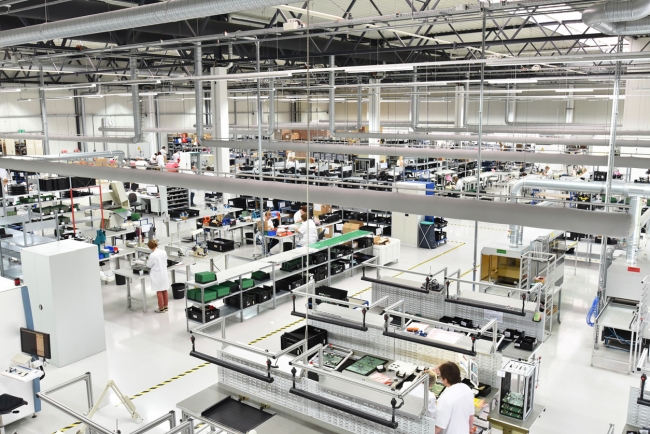4 minute read - 13th January 2025
Survey shows British manufacturers see industrial strategy as game changer for investment and productivity
According to an annual survey, Britain’s manufacturers believe the introduction of an industrial strategy will be a game changer for increasing investment and boosting productivity while helping them secure the skills they need for the future.
The findings come from the latest Make UK/PwC Senior Executive Survey, which asked senior manufacturing executives about the opportunities, risks, and challenges for their business in the year ahead and the outlook for the UK and international economies.
As well as the benefits from an industrial strategy, the survey shows that, despite the current challenges from escalating costs and a potential trade war, a majority of manufacturers believe that overall the UK remains a competitive place in which to manufacture and that the opportunities for their business in 2025 far outweigh the current risks.
Manufacturers are backing their belief in the UK with a significant emphasis on developing new products, entering new markets, and upskilling and retraining staff. The survey also supports the view of some economists that companies will counter the impact of increased costs by investing in new technologies and automation to improve their efficiency.

British manufacturers believe a new industrial strategy will be a game changer for investment and productivity, according to data from the latest Make UK executive survey / Picture: Getty/iStock
Following the recent consultation, Make UK is now urging the government to detail the full proposals for a formal long-term industrial strategy as soon as possible.
Stephen Phipson, chief executive of Make UK, said: “Manufacturers have demonstrated their resilience over and over again in recent years and, despite the numerous challenges they face, those that remain innovative and are prepared to invest in new technologies, expanding markets and, most crucially, their people will continue to thrive. But, they can only do this if they are operating in the most favourable business environment and there is little doubt that the next twelve months are set to be immensely challenging in a complex international environment.
“To help companies navigate a way through these challenges it is now vital that government sets out as a matter of urgency the immediate and significant priorities as part of its formal industrial strategy given the very clear benefits manufacturers believe this will bring. By doing this, it will help re-boot business confidence and ensure the year gets off on a positive footing in terms of the relationship between industry and government.”

Positive change: 73% of manufacturers say they expect productivity to moderately or significantly increase in 2025 / Picture: Getty/iStock
Cara Haffey, leader of industrials and services at PwC UK, added: “While it’s true that UK manufacturers are navigating a complex business landscape – compounded by rising costs – there’s a palpable sense of optimism and resilience underpinning the sector’s trajectory for 2025. This optimism is fuelled by hopes of increasing clarity on the proposed UK industrial strategy, as well as a decisive shift towards technology adoption. The sector is moving from viewing technology as a source of incremental improvements towards acknowledging its power to transform operations.
“Additionally, there’s a strong focus on innovation, with companies investing in new product lines and business development to seize growth opportunities. This approach, alongside efforts in product development, upskilling, cost management, and embracing technology, positions manufacturers well to navigate challenges and contribute significantly to national economic growth.”
According to the survey, more than half of companies (57%) say they will increase investment in response to a long-term industrial strategy. In addition, more than four in ten companies (43%) believe such a strategy will lead to increased productivity and a similar number (42%) say it will help them secure the skills they need for the future.
The survey also shows that, despite the challenges companies are facing at home and abroad, almost half of companies (49%) believe the UK remains a competitive place to manufacture compared to a quarter who disagree. In addition, almost two thirds of companies (63%) believe the opportunities for their business in 2025 outweigh the risks compared to just over one in ten (14%) who disagree.

More than nine in ten companies expect their employment costs to increase, while almost six in ten companies will increase investment in response to an industrial strategy / Picture: Getty/iStock
Companies are responding to these challenges and opportunities by focusing on growth strategies with more than three quarters of companies (78%) developing new products, almost half deploying new technologies and more than a third (37%) planning to enter new markets.
However, despite these positive intentions, as many companies think the UK economy will deteriorate in 2025 (34%) as improve (37%), while the challenges of increased costs are severe. Over nine in ten companies (92%) think their employment costs will increase, more than three quarters (76%) think the costs from other business taxes will increase and a similar number (72%) expect their logistics and transport costs to increase.
In response, Make UK is urging government to look at measures to mitigate these increases by reducing business rates in particular, as well as measures and incentives to aid decarbonisation and energy efficiency.
